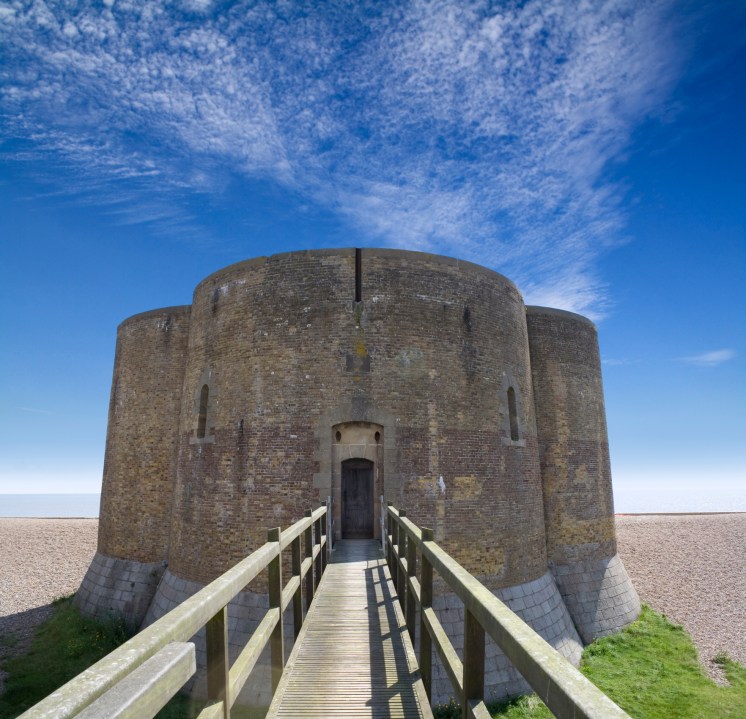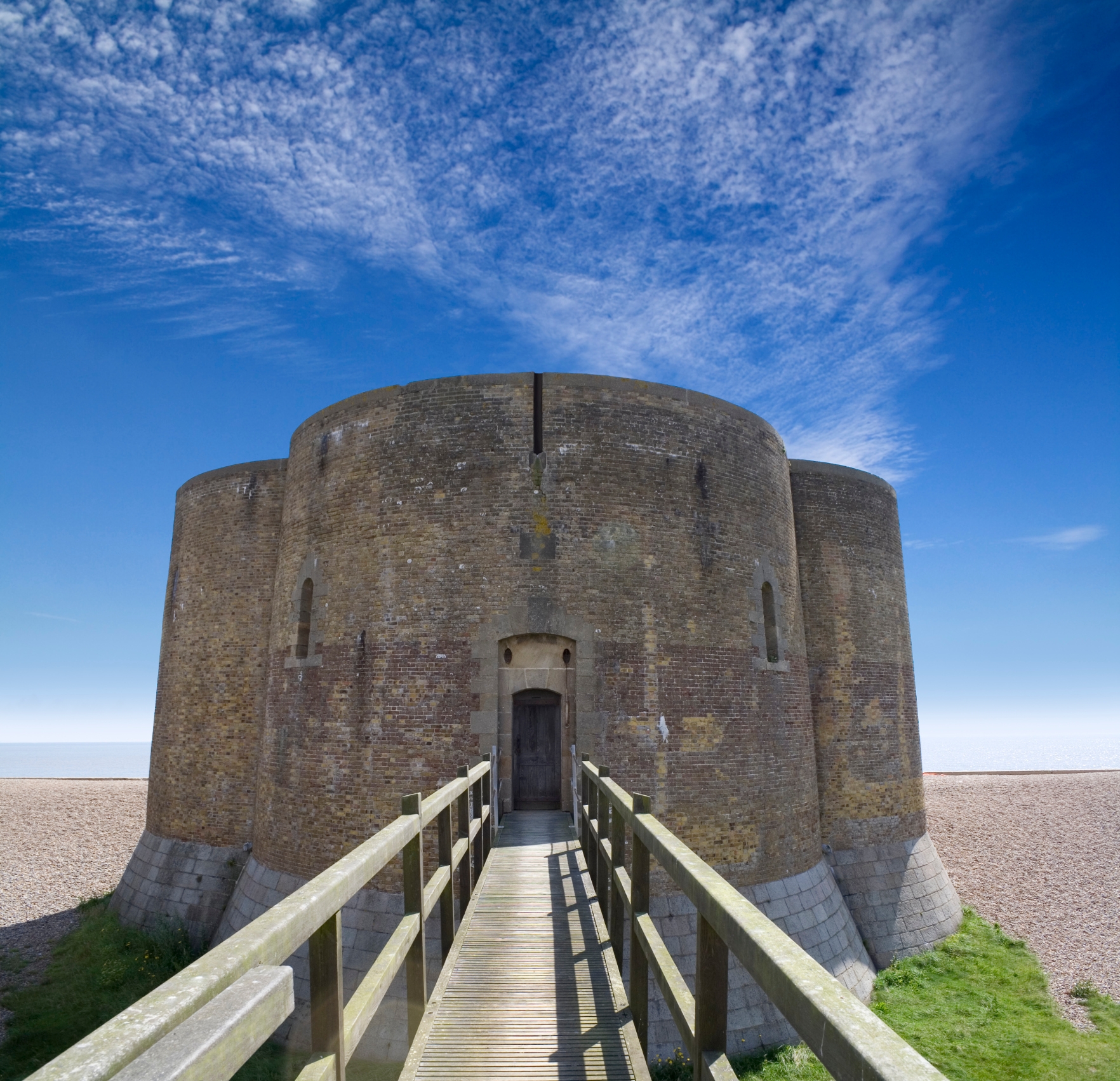The Martello Towers — that chain of 103 little fortresses built in the early 1800s along the south and east costs of England to repel a feared Napoleonic invasion — were condemned by William Cobbett at the time as a huge waste of public money; and so they turned out to be, for the British victories at Trafalgar and Waterloo ensured that Napoleon would never invade. And in fact, during the 200 years of their existence, no gun has ever been fired from any of them, with the one exception of the Martello Tower at Aldeburgh in Suffolk, the northernmost of them all, which was used by anti-aircraft gunners during the second world war.
Before that it had belonged to my wife’s aunt, the late Audrey Debenham, who bought it, derelict, in 1936 and painstakingly restored it, only to have it requisitioned by the army four years later. It had become derelict again by 1971 when it was acquired by the Landmark Trust, which restored it once more and adapted it for holiday lets. And that’s where I was staying last weekend, my wife having rented it for two purposes — first, as a way of seeing inside the building that her aunt used to own, and second to go to a performance of the opera Peter Grimes on the beach. This was the main event at the Aldeburgh music festival this year, the centenary of the birth of its composer, Benjamin Britten, the town’s most famous son and founder of its festival.
You don’t normally take a break in mid-June to experience the sea at its most wild and savage, but that was what we found ourselves doing. The Martello Tower, once part of a little village called Slaughden next to Aldeburgh, now stands alone, the rest of the village having vanished into the waves many years ago. The tower had already lost part of its moat to the sea’s erosion when Audrey Debenham bought it, and it might by now have disappeared altogether if it had not been protected by new coastal defences built in the 1950s. We arrived there in rain and strong winds and went to bed to the sound of crashing waves only a few yards away from its eight-foot-thick walls. But luckily it rained only a tiny bit as we sat on the shingle on Aldeburgh beach watching the huge cast of Peter Grimes heroically singing and rushing around in the wind on an enormous open-air set built of dilapidated fishing boats and rusting iron.
If we felt rather cold and uncomfortable, that was as it should have been, for the opera is all about the hardship of a North Sea fisherman’s life. It was brave of the festival to risk doing the opera in this way — with amplified voices singing live against a recorded orchestral background — but it succeeded triumphantly. And it might have succeeded much less well if it had been performed on a balmy summer’s evening instead of one that could have been in late November.
It was the second time this year I had seen Peter Grimes; the first time was in the opera house in Stockholm, where it was ecstatically received by a Swedish audience that doubtless warmed to a plot revolving around sea, fish and suicide. But the performance at Aldeburgh was more affecting than the one in Stockholm’s lavishly decorated royal theatre, which made one think of top hats and pince-nez. When in Aldeburgh Grimes, the brutal exploiter of boy apprentices, two of whom had died in his care, decided at the end to take his boat out to sea and go down with it rather than face the anger of the mob, you felt it could really have been happening as you watched the heaving sea stretch out in the gloaming before you.
Peter Grimes is a fine opera, but I find it very hard to sympathise with its hero. Britten recognised that Grimes was a brute, but held him only partially responsible for this. The subject of the opera, he wrote, was ‘the struggle of the individual against the masses: the more vicious the society, the more vicious the individual’. Some other writer even later described it as ‘a powerful allegory of homosexual oppression’. Yet George Crabbe, the author of the narrative poem, published in 1810, on which the opera was based, made no excuses. Grimes had a kind and loving father, yet he loathed him and beat him up. In Crabbe’s poem, thoughtfully provided by the Landmark Trust for its guests in the Martello Tower to read, nobody else was to blame for Grimes’s wickedness: he had achieved it all on his own and fully deserved the hatred he had aroused in the town. But, of course, we weren’t all victims in those days.







Comments